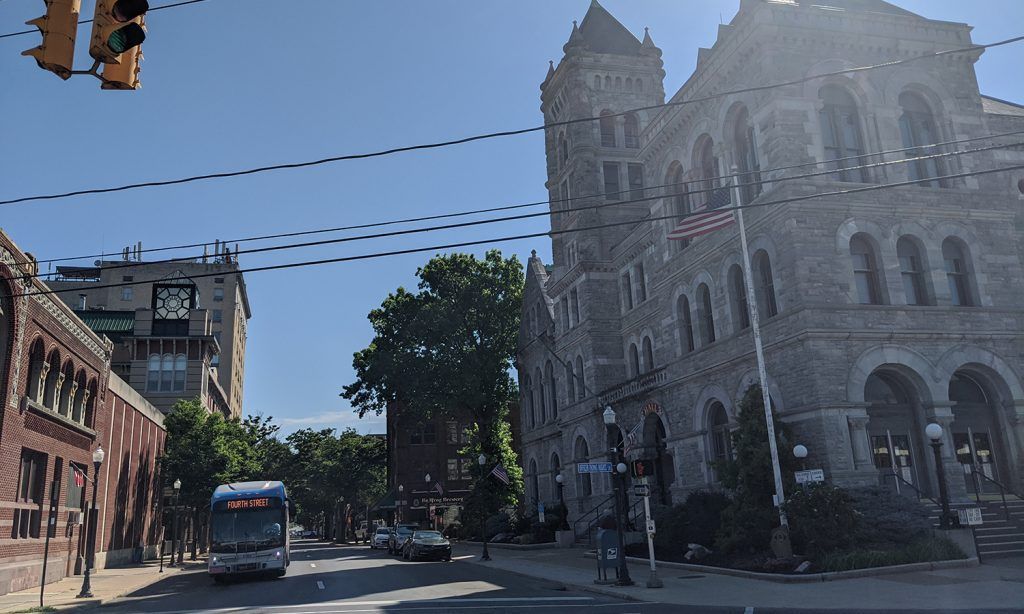
COVID-19 relief funds, criminal justice reform, immigration policy and the environment – these are just a few of the issues at the forefront of newly elected President Joe Biden’s agenda. But how many will reach the small towns of rural Northcentral Pennsylvania?
The truth is, not many, according to Craig Miller, professor of political science and social sciences at Pennsylvania College of Technology. While COVID-19 relief funds seem likely to arrive soon, many of the other issues will be tied up in congressional gridlock for years, Miller said, adding that local city councils and school boards will have a greater impact on residents’ budgets and day-to-day lives.
With the Oval Office and both houses of Congress controlled by Democrats, it’s easy to assume that nothing is standing in the way of sweeping changes. This, coupled with the slew of executive orders already signed by Biden, show the new administration’s agenda is clear.
However, even with control of both the House and Senate, a slim margin between Republican and Democrat members means legislative gridlock is imminent. In addition, some moderate or conservative leaning Democrats will have more sway than they previously did, especially for bills that require a 60% majority vote to pass.
Issues such as criminal justice reform, which has built bipartisan support, or environmental policies, which were among Biden’s primary running platforms, are sure to rise above the pack and see some progress. But Miller is skeptical that many other legislative changes will make it through the floors of both chambers, but even if some do, few will have a direct impact on rural Northcentral, Pa.
In addition, the outcome of the midterm elections will have a significant impact on what Biden is able to do over the next four years, Miller said.
Executive power
Gridlock in Congress often increases the use of executive orders by the president, according to Miller.
Executive orders are not uncommon for presidents. While they have increased in notoriety over the past few presidents, it was Bill Clinton who signed the most out of the 21st century presidents — 364 over his eight-year term.
Biden has signed over 30 executive orders since his inauguration – many pertaining to environmental issues, criminal justice reform or immigration.
“New presidents come in and want to signal to their base that they did what they wanted to do,” Miller said.
But executive orders are somewhat limited in their scope and not as permanent as legislation passed through Congress.
An executive order can be rendered obsolete when a new president is elected and reverses it. In addition, the orders can only tell agencies what to do or not do; they can’t change policy, Miller said.
The power of local
As politicians battle on Capitol Hill, local debates don’t always make the headlines or draw the same level of interest.
“Everybody knows who the president is, but nobody knows who their local representatives are,” Miller said. “Stop looking at politicians for unity and start looking at your neighbor.”
In cities such as Williamsport, Jersey Shore or Muncy, access to council members or the mayor is as easy as walking into an office or public meeting. A few vocal community members can impact the outcome of a vote or budget decision.
While federal policy can be predicted by party lines, decisions at the local level often come down to budgetary issues: How much will a new program cost? How many new employees can the county afford? How much road maintenance can the city pay for this year?
These often are the topics of conversation at city council or county commissioner meetings. While the answers to these questions and the origin of new funds may be predicted by local leaders’ political affiliations, the public’s direct access to decision makers means that they have more power than they realize.
“The normal partisan divides at the local levels just don’t mean as much because it’s more about dollars and cents,” Miller said.
A debate about giving the city police access to private security cameras is handled in the city’s finance committee and can only be approved if the funds are available to purchase the appropriate software to properly handle and dispose of the information.
At the county level, calls to provide a captioning service for the hearing impaired during public meetings were met with delays and pushback as the commissioners worked to find the funds to pay for it.
At the end of the next four years, there may be many changes. Only time will tell how many are tied to Washington, D.C., and how many are of our own making.



